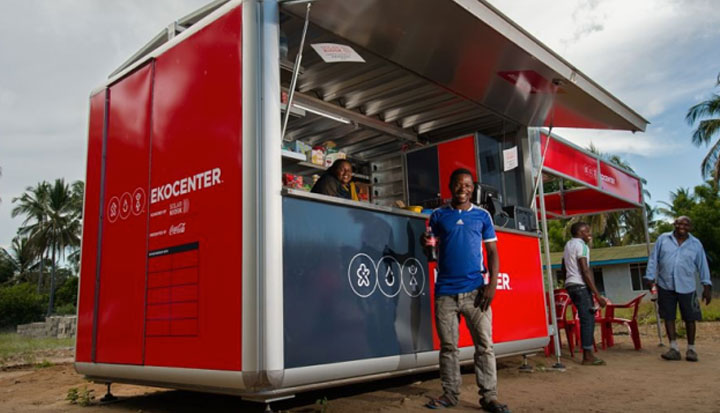Corporate Impact Venturing (CIV) is the practice of corporates directly investing capital and in-kind resources to an inclusive business with the expectation of financial, social, and strategic returns. As we have argued previously, big corporates and inclusive businesses can perfectly complement each other. Coca-Cola and SolarKiosk, for example, have partnered to develop the EKOCENTER, a solar powered kiosk that provides power, drinking water, mobile connectivity, jobs and (of course) soft drinks to low-income communities in Africa, Asia, and Latin America. Coca-Cola gets enhanced market presence and last-mile distribution capabilities; SolarKiosk gets rapid scaling of its business model.
Although CIV can include non-financial strategic partnerships, most relationships are joint ventures with equity investments or loans. Corporates also have the option to eventually absorb inclusive businesses to boost their growth prospects.
Corporates and inclusive businesses benefit from CIV in numerous ways.
Corporates get:
- Access to market insights and disruptive models
- Footholds in low-income markets and brand name recognition
- Access to top local talent
- Last-mile distribution channels
By partnering with Clean Team Ghana, for example, Unilever gained insights into the market viability of portable sanitation systems as well as an outlet for its cleaning products.
Inclusive businesses get:
- Financial capital
- Managerial, business or technical expertise
- Increased scalability
- Introductions and access to additional funders
For example, after The Body Shop invested in Divine Chocolate Company’s cocoa production co-operative, Divine leveraged the partnership to secure additional funds from Oikocredit and Comic Relief.
And when German impact investor Tengelmann Social Ventures took a 30% stake in Coffee Circle – which buys coffee from Ethiopian farmers and supports local social projects – it also introduced Coffee Circle products into select stores in Tengelmann’s Kaiser’s supermarket chain.
Intermediaries can help make the match
Naturally in a newly-emerging field, CIV practitioners face considerable challenges. Primarily, there are not enough true social enterprises to invest in. Potential investees, in turn, struggle to identify suitable corporate partners that see benefits in a partnership.
A solution is for corporates to use intermediaries to identify, screen and evaluate potential investees and develop partnership designs. Intermediaries include venture philanthropists, impact investment firms and impact investment consultants.
Intermediaries can provide targeted advice on the most suitable investment model and help assemble a potential portfolio of inclusive business investments.
When investing in inclusive business One Degree Solar, Schneider Electric used the impact investment firm PhiTrust to screen the company and assist in the investment process.
Inclusive businesses may also use intermediaries to identify a suitable corporate investor. InOpen Technologies, for example, partnered with Unitus Capital to secure Series A funding from Japanese education giant Benesse Corporation.
Corporate Impact Venturing has the potential to become a significant growth engine, driving capital towards innovative, sustainable enterprises that deliver widespread social benefits.
Endeva and its co-hosts SEED and Business Fights Poverty held a one-day practitioner workshop on CIV in Munich on March 9. The results from this workshop will be published soon!
This blogpost was authored by Christina Tewes-Gradl, Sarah Worthing, Aline Menden and James Tulloch and also published on Business Fights Poverty. Photo source: The Coca-Cola Company



